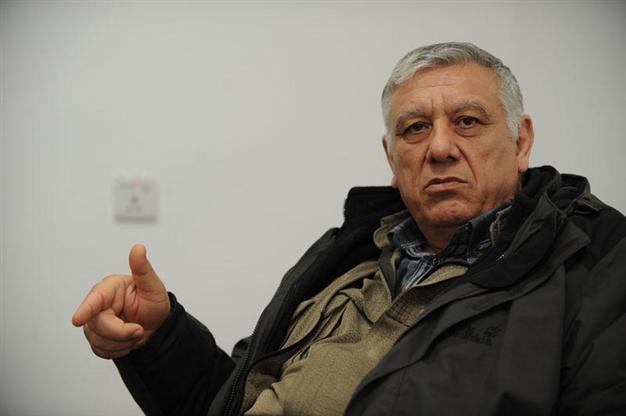Turkish presidential spokesperson accuses BBC of ‘indirectly supporting’ PKK
ANKARA
 The Turkish president’s office has criticized the BBC for an interview with a leader of the outlawed Kurdistan Workers’ Party (PKK), suggesting that the interview was aimed at portraying the group’s “rhetoric as if they are reasonable and legitimate demands.”
The Turkish president’s office has criticized the BBC for an interview with a leader of the outlawed Kurdistan Workers’ Party (PKK), suggesting that the interview was aimed at portraying the group’s “rhetoric as if they are reasonable and legitimate demands.” “This kind of work aimed at acquitting the terror organization has no relation with journalism. This is nothing but indirect support lent to terrorist propaganda,” İbrahim Kalın, the spokesperson for President Recep Tayyip Erdoğan, said April 25, hours after the BBC published an interview with Cemil Bayık, who along with Murat Karayılan, is considered the PKK’s top commander on the ground in the absence of the group’s imprisoned leader, Abdullah Öcalan.
Kalın asked what Britain’s reaction would be if “a news agency financed by taxes paid another country’s citizens had a similar interview with al-Qaeda” which launched the 7/7 attacks on London in 2005 and “tried to portray the head of that terrorist organization as if he is a reasonable and legitimate actor.”
“Here, we face a very similar situation. Going and holding meetings with this spokesperson of the PKK and that leader of the PKK, etc., and then trying to impose the PKK’s rhetoric as if they are reasonable and legitimate demands is nothing but something that indirectly aids terror propaganda,” he said, adding that Turkey “rejects and condemns” such activities.
In the interview with BBC, Bayık confirmed the PKK had had “direct” communications with the United States in the battle against the Islamic State of Iraq and the Levant (ISIL).
“This claim was voiced by terror organization leaders previously too and was rejected by the related countries,” Kalın said when asked whether they had any information on such contacts. Turkey takes statements made by those countries at their face value, he added.
This is not the first time that Turkish authorities have targeted U.K. media outlets’ reporting on the PKK, which is listed as terrorist organization by the European Union and the United States, in addition to Turkey.
In 2005, then-Prime Minister Recep Tayyip Erdoğan harshly criticized the BBC and Reuters for describing PKK members as militants and guerillas instead of terrorists.
In August 2015, this time, the Turkish Foreign Ministry accused the BBC of “openly supporting terrorism” by making “written and visual propaganda” for the PKK.
At the time, in response to Erdoğan’s criticism in 2005, the BBC said taking into consideration the specific conditions of each incident, it prefers to use more descriptive words such as “bombers, attackers, armed people, kidnappers, rebels and militants” when reporting about perpetrators of violent incidents. The BBC also said it avoided using the term “terrorist” for the IRA, for fear of sparking Catholic reactions in Ireland.
















